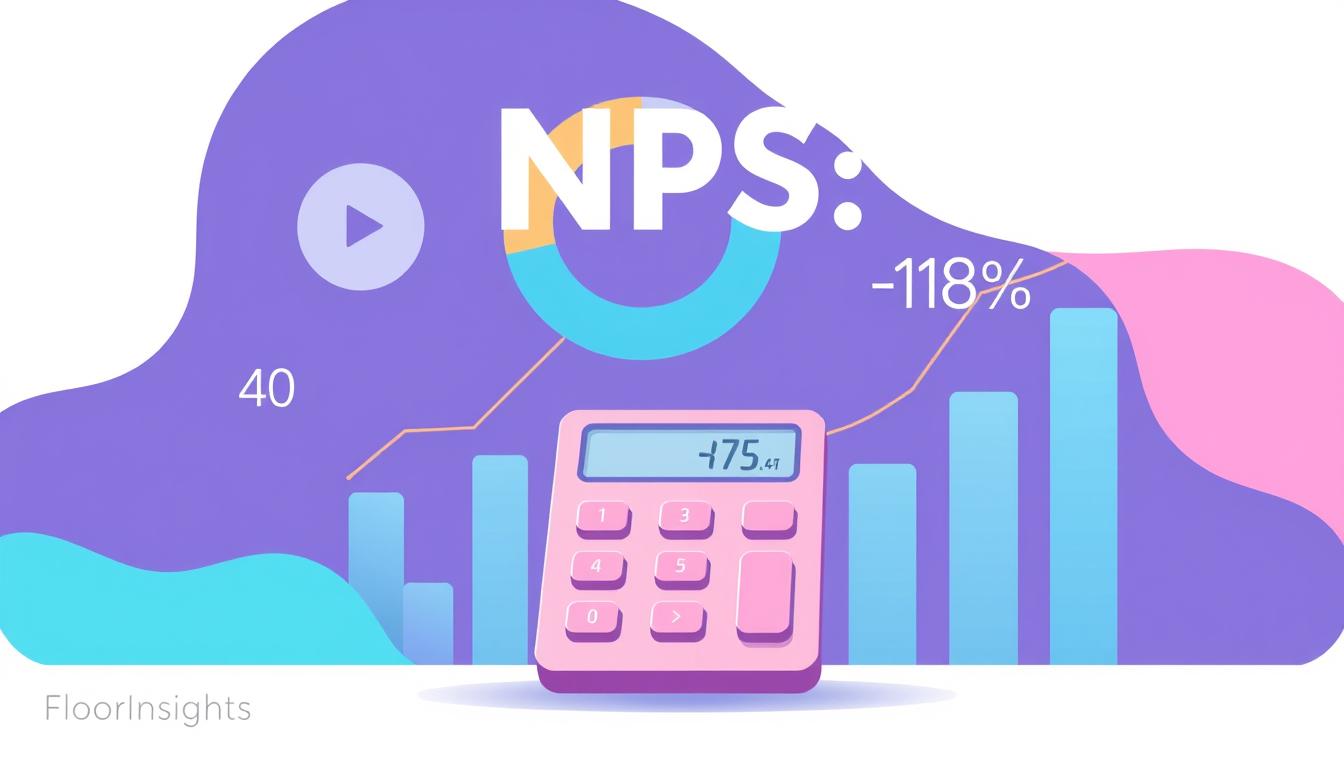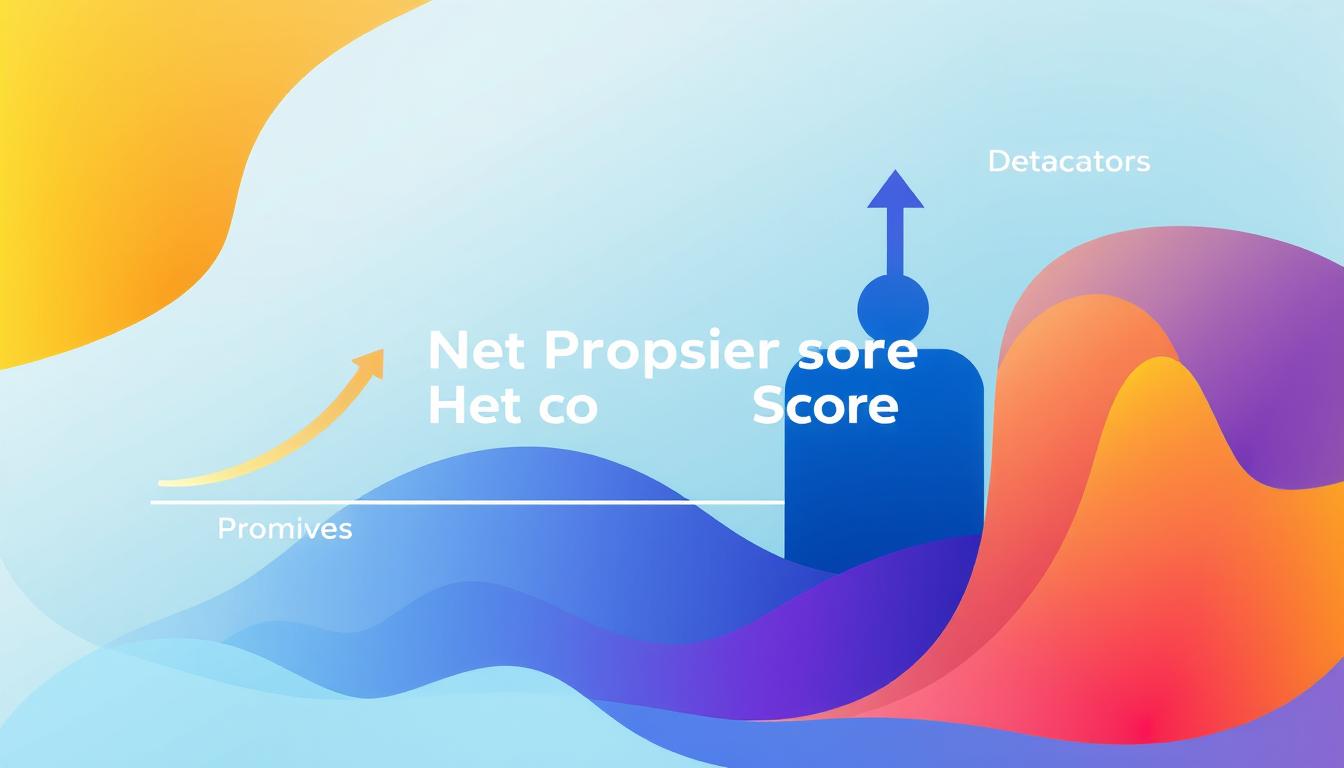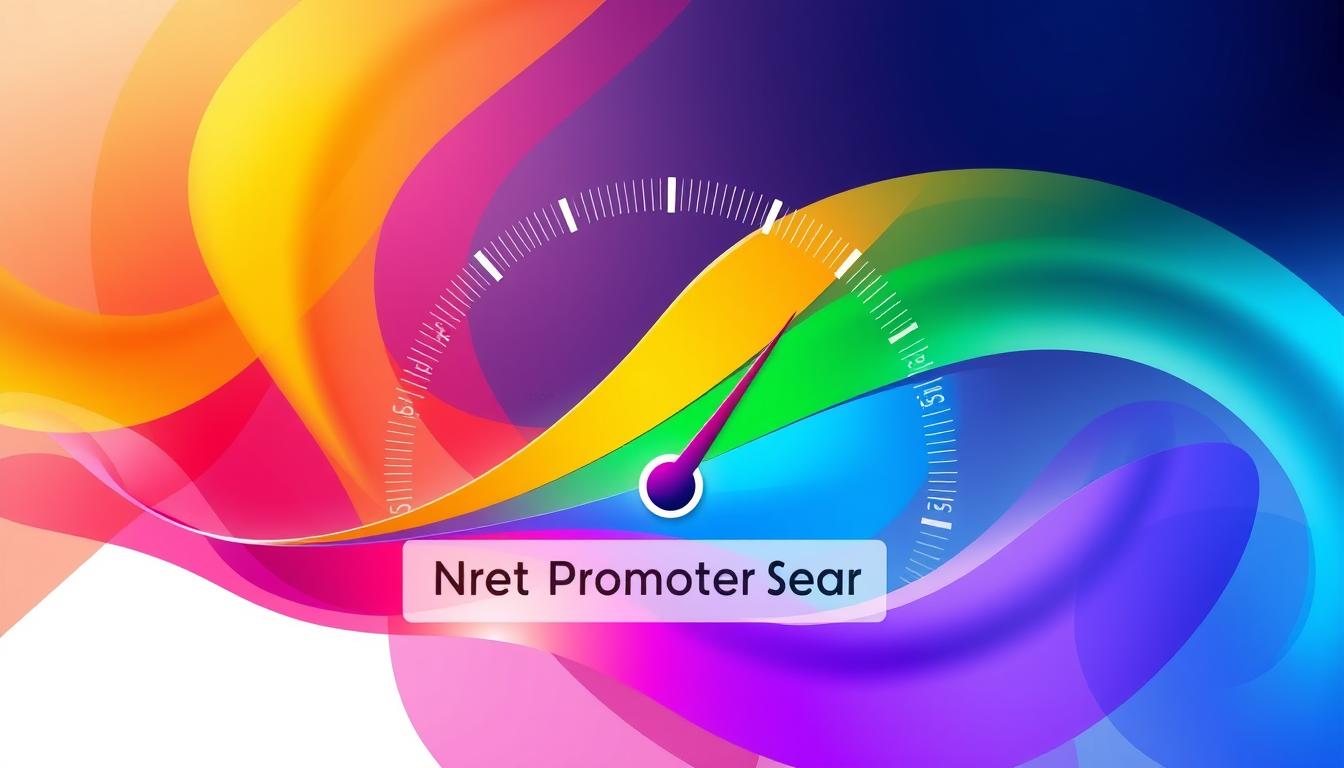As we venture into a more interconnected world, the significance of the Net Promoter Score (NPS) in evaluating customer satisfaction and loyalty in the Indian market cannot be overstated. We believe that the infusion of AI in NPS surveys and machine learning NPS methodologies will be pivotal in revolutionizing how we collect and analyze customer feedback. The future trends in customer insights will not only improve the accuracy of our data but also enhance the overall customer experience through innovative NPS survey platforms. In this article, we will explore how these technological advancements are set to shape NPS surveys.
Key Takeaways
- The importance of NPS in measuring customer loyalty and satisfaction.
- AI and machine learning are transforming traditional NPS methodologies.
- Enhanced data collection leads to richer customer insights.
- Real-time analytics can significantly influence decision-making.
- Customers can expect a more personalized experience through improved segmentation.
- Challenges must be addressed to fully leverage AI in NPS surveys.
Introduction to NPS Surveys
The Net Promoter Score (NPS) survey serves as a vital tool for organizations in gauging customer loyalty. By employing this customer feedback mechanism, we gain insights into customer satisfaction and loyalty levels. This system categorizes respondents into three distinct groups: promoters, passives, and detractors. Promoters exhibit high levels of loyalty and actively advocate for the brand. Passives are satisfied but not enthusiastic, while detractors express dissatisfaction and can potentially harm the business’s reputation.
Understanding the classifications within the net promoter system allows us to identify areas ripe for improvement. The results from NPS surveys guide companies in addressing specific customer concerns and enhancing service quality. In a market like India, where consumer feedback holds immense significance, implementing an effective NPS survey is crucial for organizations aiming for sustained growth.
In summary, NPS surveys provide a structured approach to collecting valuable customer insights. By embracing these principles, we can effectively drive customer retention and business success.
The Current Landscape of Net Promoter Score
The Net Promoter Score (NPS) has emerged as a vital measurement tool for businesses, enabling insights into customer loyalty and satisfaction. As we analyze the current NPS trends, we find its adoption prevalent across various industries in India. Many organizations now recognize the value of NPS for making strategic decisions that influence growth and customer retention.
Recent studies reveal that more than 60% of companies in India have integrated net promoter score measurement into their performance metrics. This shift reflects an emphasis on understanding customer feedback and aligning products or services with consumer expectations. Organizations that embrace NPS best practices, like continuous feedback loops and actionable insights, experience enhanced customer relationships and brand loyalty.
Despite this widespread adoption, challenges remain. Traditional methods of measuring NPS can struggle with data accuracy and respondent engagement. The need for modernizing our approaches has never been clearer to improve the effectiveness of NPS. By refining our methodologies, we can ensure that net promoter score measurement provides a real and meaningful understanding of customer sentiment.
| Industry | Adoption Rate (%) | Common Challenges |
|---|---|---|
| Retail | 70% | Low response rates |
| IT Services | 65% | Data integration issues |
| Hospitality | 75% | Feedback interpretation |
| Healthcare | 60% | Privacy concerns |
As we navigate the evolving landscape of NPS, embracing innovative techniques to overcome challenges will allow us to enhance our measurement practices and foster deeper customer connections.
Understanding AI and Machine Learning
As we venture into the realm of AI and machine learning, it’s crucial to grasp the fundamental concepts that drive these technologies. AI in customer insights leverages vast amounts of data to recognize patterns and generate actionable intelligence. Machine learning basics equip systems with the ability to learn and improve from experience, getting smarter over time without explicit programming.
AI technology in surveys empowers businesses to analyze feedback in innovative ways. Traditional methods often fall short in capturing nuanced sentiments, while AI enhances this process by evaluating language, context, and tone. Understanding algorithms like decision trees and neural networks enables us to harness precise analytics that can predict customer behavior and satisfaction levels.
We also encounter numerous myths associated with AI; many perceive it as a black box offering mystery instead of clear benefits. In reality, by embracing AI technology in surveys, organizations can demystify their strategies. Our approach to business intelligence can evolve to become more customer-centric, driving retention and brand loyalty through informed decision-making.
How AI Enhances NPS Survey Platforms
In the dynamic landscape of customer feedback, leveraging AI technologies transforms how we conduct NPS surveys. The AI NPS survey platform significantly streamlines processes, making them more efficient and effective. We can now delve into the specific enhancements AI brings to NPS survey platforms.
Automation of Data Collection
One of the primary advantages of an AI NPS survey platform is the automation of data collection. This feature not only reduces manual effort but also speeds up the feedback process. Automated surveys ensure that responses are gathered timely, allowing us to make more informed decisions based on real-time data. The result is a more agile approach to customer satisfaction monitoring.
Real-time Analytics Capabilities
Integrating AI into net promoter score software empowers organizations with real-time analytics capabilities. This means that as feedback comes in, we can analyze data instantly. Immediate insights into customer sentiments help us identify trends and potential issues swiftly, enabling proactive measures to enhance customer experiences.
Enhanced Customer Segmentation
Another significant enhancement is improved customer segmentation driven by AI algorithms. By analyzing customer feedback with precision, we can classify respondents into specific segments. This allows us to tailor our strategies and outreach for each group. Enhanced targeting leads to better engagement, fostering higher satisfaction rates and deeper relationships with customers.
Impact of Machine Learning on Net Promoter Score Measurement
The integration of machine learning NPS into Net Promoter Score measurement is transforming how organizations understand customer loyalty and satisfaction. By leveraging advanced algorithms, businesses can uncover deeper insights into customer behavior, leading to more informed decision-making and enhanced experiences.
Predictive Analysis for Customer Behavior
Predictive analysis in surveys is one of the most powerful applications of machine learning NPS. By examining historical data, these algorithms can forecast trends related to customer behavior. For example, organizations can predict which customers are likely to promote their brand or, conversely, those who may have a negative experience. This proactive approach allows companies to refine strategies and take actions that positively influence customer sentiment ahead of time.
Sentiment Analysis on Open-Ended Feedback
Sentiment analysis NPS plays a crucial role in interpreting qualitative feedback from customers. This technique allows us to analyze open-ended survey responses, determining the emotions and sentiments expressed by users. By understanding the nuances in customer comments, businesses can gain valuable insights into specific areas of improvement. Consequently, organizations can tailor their approaches to align with customer expectations, enhancing overall satisfaction and loyalty.
Future Trends in NPS and Customer Insights
As we look ahead, the future of NPS will undoubtedly be shaped by emerging technologies and customer expectations. The rapid advancement in data analytics and machine learning will transform how businesses interpret NPS metrics. With the integration of real-time data processing, organizations can achieve more personalized insights, catering to the ever-evolving demands of consumers.
Customer insights trends indicate that businesses will increasingly prioritize proactive engagement strategies over reactive ones. By leveraging predictive customer analysis, companies can identify potential pain points before they escalate. This proactive approach enhances the overall customer experience and fosters stronger relationships.
To effectively adapt to these trends, organizations must be prepared to invest in advanced analytics tools that offer deeper insights into customer behavior. Our ability to process and analyze vast amounts of data in real-time will enable us to track shifts in customer sentiment and preference, ensuring that our NPS strategies remain relevant.
Below are some key trends shaping the future of NPS and customer insights:
- Real-time Feedback Mechanisms: The shift towards continuous feedback will allow businesses to stay aligned with customer expectations.
- AI-Powered Predictive Analysis: Companies will utilize AI to forecast customer behavior, aiding in strategic planning and response.
- Integrated Customer Journeys: Understanding the entire customer journey will help optimize touchpoints and enhance satisfaction.
- Focus on Emotional Drivers: Recognizing the emotions behind customer feedback will lead to more meaningful insights.
- Multi-Channel Insights: Data collected from various platforms will provide a holistic view of customer sentiment.
| Trend | Description |
|---|---|
| Real-time Feedback | Continuous feedback allows for swift adjustments to customer strategies. |
| Predictive Analysis | AI-driven forecasts enable proactive responses to customer needs. |
| Integrated Journeys | Holistic understanding of customer interactions improves satisfaction. |
| Emotional Insights | Focusing on the emotions behind feedback fosters deeper connections. |
| Multi-Channel Data | A comprehensive view from various platforms enhances sentiment analysis. |
Integration of AI with Net Promoter Score Software
Integrating AI with NPS software represents a significant evolution in how we understand customer feedback. By leveraging NPS technology integration, organizations can enhance their data analysis capabilities, delivering deeper insights into customer satisfaction. The first step towards achieving effective integration involves identifying the specific AI-driven tools that align with our existing NPS systems. These tools vary in function but often include features such as predictive analytics, automated feedback processing, and advanced sentiment analysis algorithms.
Successful AI-driven NPS integration requires a strategic approach that focuses on seamless melding of technologies. We can take several actions to ensure this process functions optimally:
- Assess current NPS software capabilities and identify gaps in data processing.
- Research available AI-driven tools that can be integrated, such as customer sentiment analysis platforms.
- Implement a phased integration plan that allows for troubleshooting and adjustments as needed.
- Train teams on how to interpret the new data insights generated by these integrations.
The transformational benefits of integrating AI with NPS software have been showcased through various case studies. Multiple organizations have reaped substantial advantages from adopting AI-enhanced systems. These successes highlight the potential of AI-driven NPS to not only increase response rates but also improve the overall quality of feedback collected. With comprehensive insights at our fingertips, we can refine our customer engagement strategies and drive business growth.
Challenges and Considerations when Implementing AI in NPS Surveys
As we embrace the integration of AI into our NPS surveys, we must be prepared to navigate various challenges in NPS technology. Implementing AI technologies can present numerous AI implementation issues that need careful consideration.
One primary concern involves data privacy. Protecting customer information becomes imperative, especially when AI processes sensitive data. Organizations should ensure compliance with regulations such as GDPR, taking steps to secure data while maximizing the use of AI insights.
Understanding the limitations of AI technologies is another crucial aspect. AI can provide powerful analytics and feedback mechanisms, yet it may not always interpret data accurately. Misinterpretations could lead to misguided strategies, impacting overall customer satisfaction and harming brand reputation.
Proper training for employees and change management strategies within organizations play a pivotal role in addressing these NPS survey considerations. It is essential to equip our teams to work alongside AI tools effectively, ensuring that everyone understands how to leverage these technologies to enhance NPS outcomes.
We can summarize our considerations in the following table:
| Challenge | Considerations |
|---|---|
| Data Privacy | Ensure compliance with data protection regulations; secure sensitive information. |
| Limitations of AI | Recognize potential misinterpretations, calibrating AI insights with human judgment. |
| Training and Change Management | Invest in training employees to utilize AI tools effectively and adapt to new processes. |
By navigating these complexities, we can maximize the advantages of AI in improving our NPS survey outcomes.

Conclusion
In summary of AI in NPS, we have explored how the integration of artificial intelligence and machine learning is driving a significant transformation in Net Promoter Score surveys. These technologies empower businesses to gather insights with greater efficiency and precision, thus enhancing our understanding of customer sentiment and behavior. The future of Net Promoter Score looks promising as organizations leverage AI capabilities to not only streamline data collection processes but also provide actionable analytics that inform strategic decisions.
As we move forward, it is clear that embracing AI will not only elevate the complexity of our analyses but also bring forth innovative methods for transforming customer feedback into meaningful strategies. By capitalizing on these advancements in technology, we can foster deeper customer loyalty and satisfaction across diverse markets, including India. Thus, the ongoing evolution of NPS will be closely tied to how effectively we utilize these tools to understand and respond to our customers’ needs.
Ultimately, the path ahead calls for a commitment to integrating advanced technological solutions in our feedback mechanisms. As we embrace the potential of AI and machine learning, we will be better positioned to navigate a rapidly changing business landscape and build stronger connections with our customer base.
FAQ
What is the Net Promoter Score (NPS) and why is it important?
The Net Promoter Score (NPS) is a customer feedback mechanism that measures customer loyalty and satisfaction. It is vital for businesses as it helps gauge customer sentiment, drive retention strategies, and identify areas for improvement.
How does AI enhance NPS surveys?
AI enhances NPS surveys by automating data collection, providing real-time analytics, and improving customer segmentation. This allows us to respond quickly to customer needs and tailor strategies to boost satisfaction.
What role does machine learning play in NPS measurement?
Machine learning plays a significant role in NPS measurement by enabling predictive analysis of customer behavior and performing sentiment analysis on open-ended feedback, thus allowing us to interpret qualitative data effectively.
How can businesses integrate AI with their Net Promoter Score software?
Businesses can integrate AI with their NPS software by implementing AI-driven tools that offer comprehensive insights into customer satisfaction. Key steps include assessing existing systems, selecting the right AI tools, and training staff on new technologies.
What challenges might we face when implementing AI in NPS surveys?
Challenges in implementing AI in NPS surveys may include data privacy concerns, understanding the limitations of AI technologies, and requiring proper training and change management strategies to ensure successful adoption.
Why is the Net Promoter Score measurement critical for businesses?
NPS measurement is critical for businesses as it provides a clear metric for assessing customer loyalty. It helps organizations make informed strategic decisions, ultimately driving growth by understanding customer preferences and behaviors better.
What are the future trends in customer insights related to NPS?
Future trends in customer insights related to NPS will likely include advancements in real-time data processing, enhanced analytics capabilities, and a greater focus on personalized customer experiences, reflecting evolving customer expectations.
How does the net promoter score software differ from traditional feedback systems?
Net Promoter Score software specifically focuses on gauging customer loyalty and segmenting customers into promoters, passives, and detractors, whereas traditional feedback systems may cover a broader range of topics without this specialized analysis.
What is the role of sentiment analysis in NPS surveys?
Sentiment analysis within NPS surveys allows us to decode customers’ emotional responses by analyzing open-ended feedback. This deeper understanding helps businesses enhance interactions and improve service based on genuine customer feelings.






